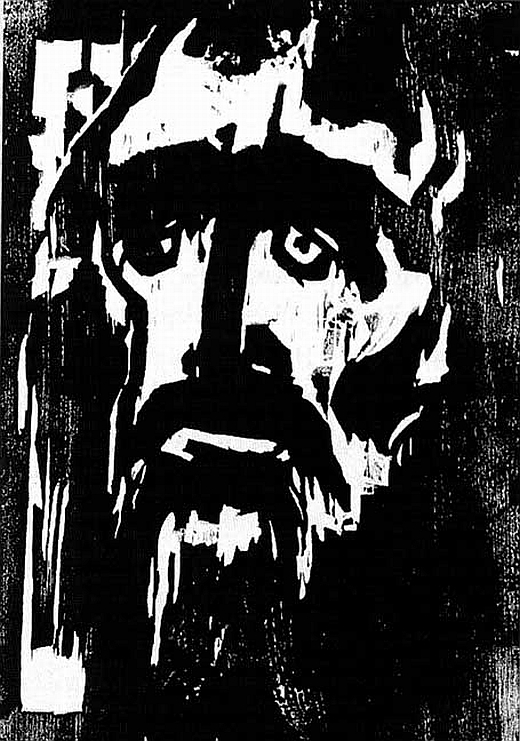
Occasionally I made an effort to imitate him, concentrating my will on an objective in a manner calculated to achieve it. I had desires, but somehow they never quite seemed pressing. But I could never bring myself to discuss them with Demian. What I wished for myself, I would never manage to confess to him. Neither did he question me.
My faith in religious questions had in the meantime developed some holes. Nevertheless, I was in my thinking thoroughly under Demian’s influence and stood quite apart from my fellow students who rushed to display their complete lack of faith. There were many of them and they frequently uttered phrases to the effect that it was ludicrous and unworthy of humans to believe in God. They held stories like the trinity and the belief in the immaculate birth of Jesus to be laughable and they considered it scandalous that people walked about with such nonsense in their heads today. I did not share this perspective. Even when I had doubts, still I knew from the totality of my experience as a child enough of the truth of a pious life, such as my own parents led, and that this was neither something unworthy nor hypocritical. To the contrary I continued to harbor the deepest respect in the face of religion. Yet Demian had led me to approach and understand the stories and parables in a freer, more personal, playful and more imaginative fashion. In any event, I followed the interpretations that he advanced with interest and pleasure. Much of it seemed crude to me, such as the story of Cain. And once during confirmation class he surprised me with a view which was still more clever. The teacher had spoken of Gologatha. The Biblical account of the suffering and death of the savior had made the deepest impression upon me from my earliest childhood. Often as a small boy I had, after my father had read the story of the passion on Good Friday, lived in this painfully beautiful, pale, ghostly and still powerfully living world of Gethsemane and on Golgatha. I had experienced it listening to Bach’s St. Matthew Passion, it had flooded me with the somber, powerful tones of this mysterious world, with its mystical drama. Even today I find in this music, and in Actus Tragicus the essence of all that is poetical and of all artistic expression.
And then at the end of class, Demian said something to me brimming with thought: “Something about this story seems wrong to me, Sinclair. Read the story again and test it on your tongue, something rings false about it. It’s the story of the two thieves. It’s terrific the way the three crosses are left together on the hill. But then this sentimental tractate story of the two thieves! First he was a thief and commited crimes, heaven knows what, and now he melts into this picture and celebrates a tearful act of improvement and contrition! What should we make of this act of contrition two steps from the grave, I ask you? This is a pathetic priest’s tale, saccharine sweet and dishonest. It’s filled with cheap sentimentality and its message is too simple. If you today were to win one of these two thieves as your friend, or had to decide to which of the two your would render your trust, then assuredly it’s the one who has converted in a veil of tears. But no, for me it would be the other–he’s the one who shows some character. He says to hell with your conversion, which in his case would be a cute little speech, he carries on his path to its logical conclusion and does not rid himself of the devil who has helped him up to that point in a cowardly manner. He is a man of character of the sort that these Biblical tales make short work. Perhaps he’s even a descendant of Cain. What do you think?”
. . . But Demain’s new thought struck me as fatal and threatened to overthrow my faith, the basic beliefs upon whose truth I felt a need steadfastly to hold. No, it wasn’t right to leap around with such fantasies, certainly not with things which were so holy.
—Hermann Hesse, Demian. Die Geschichte von Emil Sinclairs Jugend, ch. 3 (Der Schächer) (1919) in: Gesammelte Schriften, vol. 3, pp. 154-55 (1957)(S.H. transl.)
Listening Recommendation:
—Johann Sebastian Bach, The Passion According to Matthew (Matthäuspassion), BWV 244 (1727). Best recordings: Karl Richter and the Münchener Bach-Chor with Dietrich Fischer-Dieskau (Archiv)(1957); Philippe Herreweghe and the Collegium Vocale Gent with Ian Bostridge (Harmonia Mundi)(1998).
—Johann Sebastian Bach, Cantata No. 106, “Gottes Zeit ist die allerbeste Zeit” (“Actus Tragicus”), BWV 106 (1708). Best recording: John Eliot Gardiner, The Monteverdi Choir (Archiv)(2000).
Today is the 323rd birthday of Johann Sebastian Bach.


